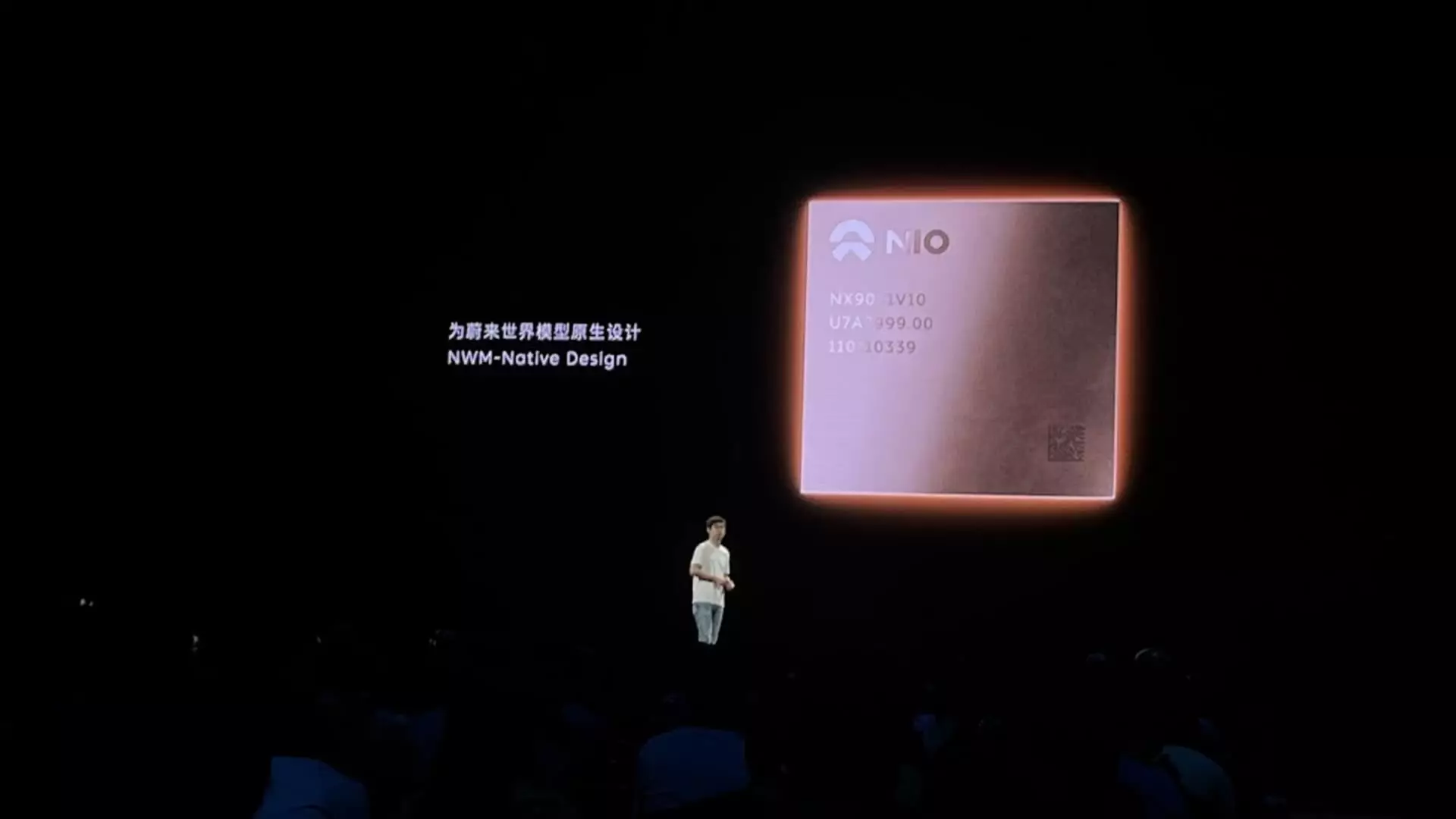In the competitive world of electric vehicles, Chinese companies are not just battling for market share based on pricing but are also focusing on technological advancements. One such area of intense competition is the development of in-house designed auto chips to power tech features like driver-assist functions. This shift marks a strategic move by companies like Nio and Xpeng to reduce dependency on third-party chips and gain a competitive edge in the rapidly evolving electric vehicle market.
The use of off-the-shelf Nvidia chips by many major Chinese electric car manufacturers has presented a challenge in terms of product differentiation. With competitors utilizing the same silicon chips for powering their infotainment and intelligent driving systems, companies like Nio and Xpeng are finding it hard to showcase their products as superior solely based on features driven by these standard chips.
According to industry experts like Tu Le, founder of Sino Auto Insights, the shift towards developing in-house chips is driven by the need for customization and unique features. By designing their own chips, Chinese automakers can tailor the technology to meet specific requirements, offering a level of personalization that is not possible with off-the-shelf solutions. This move allows companies to stand out in a crowded market and potentially attract a niche customer segment looking for specialized features.
The announcement by Nio regarding the completion of their automotive-grade 5 nanometer chip, the NX9031, signifies a significant milestone for the Chinese automotive industry. By harnessing advanced production technology, companies like Nio are pushing the boundaries of innovation and breaking through previous limitations in intelligent driving chip development. This technological leap positions Chinese electric car manufacturers at the forefront of chip design and sets the stage for future advancements in the industry.
While companies like Xpeng are venturing into in-house chip development, they are also maintaining strategic partnerships with established players like Nvidia. The collaboration between Xpeng and Nvidia highlights the importance of leveraging expertise from external sources while also investing in internal R&D capabilities. This dual approach allows companies to benefit from the best of both worlds and stay competitive in a rapidly evolving market landscape.
Looking ahead, Chinese electric car companies are not just focusing on the domestic market but are setting their sights on global expansion. Xpeng’s vision to become a global artificial intelligence car company reflects the ambitious nature of these companies as they aim to compete on a global scale. Moreover, advancements in driver-assist technology and the increasing emphasis on semiconductor technology underscore the pivotal role that Chinese automakers are playing in shaping the future of the automotive industry.
The shift towards in-house chip development by Chinese electric car companies represents a strategic move to enhance product differentiation, drive technological innovation, and position themselves as leaders in the global electric vehicle market. By leveraging cutting-edge technology, forming strategic alliances, and focusing on customization, these companies are paving the way for a new era of innovation and growth in the automotive industry. As they continue to push the boundaries of what is possible, Chinese electric car manufacturers are poised to redefine the future of transportation with their forward-thinking approach to chip-powered tech features.

